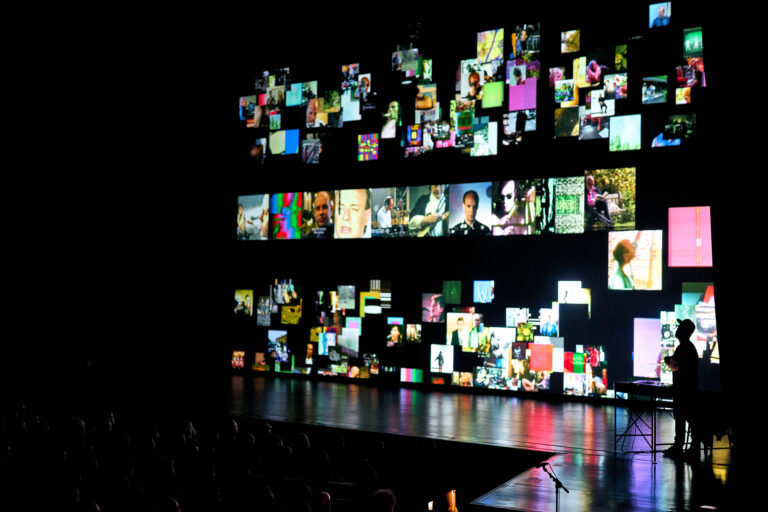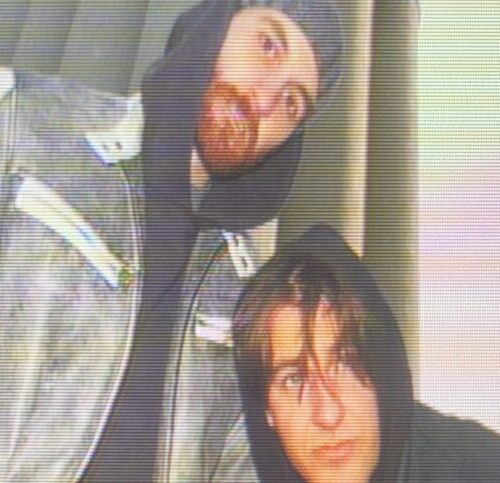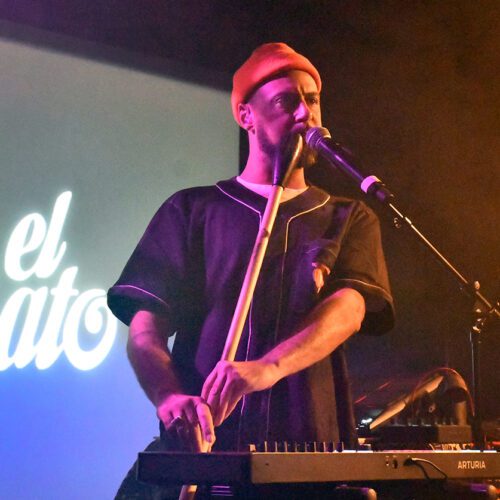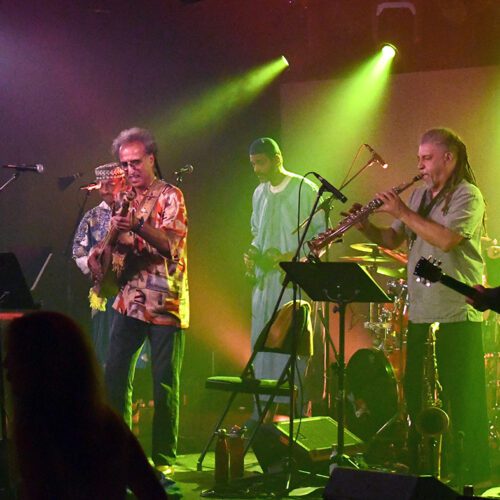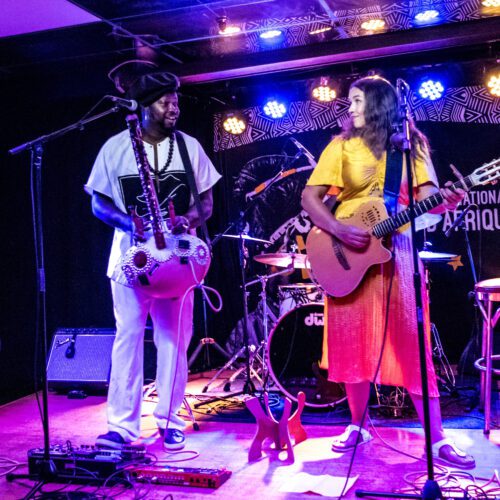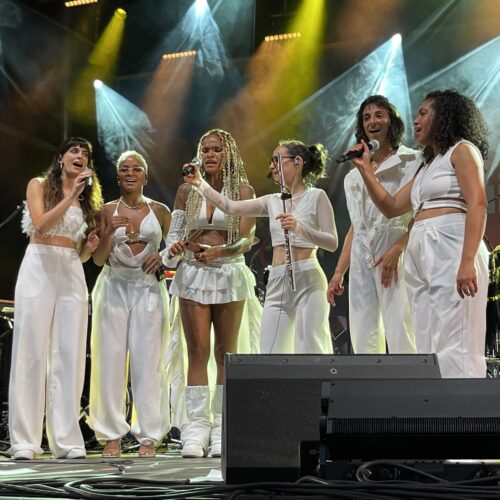Roxy Music circa 1973, androgyny personified, the Berlin era Heroes Bowie sessions, the reason we as humans love music … the oblique strategies cards. All of these musings and moments in time—memories from Brian Eno’s illustrious, five-decade career, appear on the screen in the Maisonneuve Theatre—sometimes alone, sometimes as one crazy cluster. And this specific pairing or iteration will never be shown on screen again. This iteration is only for us, the audience.
ENO. is a generative documentary about the artistic impetus and history of the great Brian Eno, the father of ambient music, a sought-after music producer, and one of the reasons synthesizers became mainstream. Created by filmmaker Gary Hustwit, the film uses AI technology to create a different viewing experience during every screening. Hustwit himself actually mixes the film live and sometimes guides it along from the BRAIN ONE console on stage. Using an archive of over 500 hours of studio sessions, interviews, music videos, and more as well as the 50-odd hours Hustwit got from Eno himself, this film is a treasure trove for any music lover or artist—perfect for the MUTEK crowd.
The generative documentary style was the only way Hustwit was able to convince Eno to agree to be part of it and for someone with a career that has been at the forefront of musical tech and creativity and has changed how we make and listen to music, I can’t think of a better subject for this emerging style.
I can only say what we saw; which did follow many of the music documentary beats; a rise to fame, fuzzy studio sessions with Bowie, John Cale, U2, the day-to-day life of Eno now in his mid-70s, but also moments of pure abstraction, highlighted by multicoloured obelisks, discs, and cubist digital drawings.
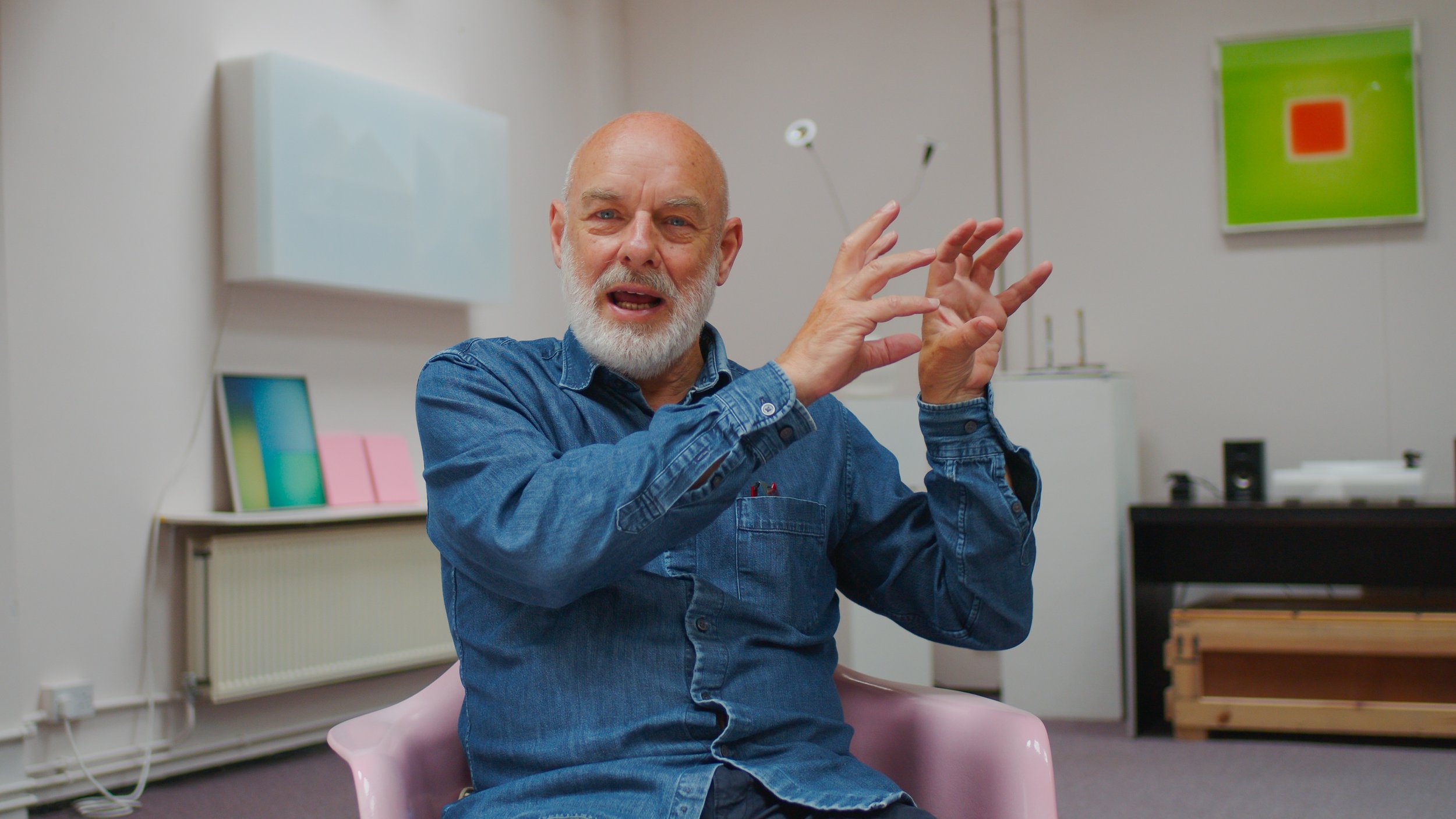
Still from ENO.
The film also sometimes blips in and out of time, noted by the screen throwing up a number of sequences like, eno._1975_discreetmusic, Dutchtv_interview_hats, Bowie_milk_ambient. This is the AI deciding which next bit to show and sometimes the results are extraordinary, others a bit self-serving. You never quite know what moment in time is going to come next with Eno. which makes it an invigorating film to watch. Although this was made by a filmmaker, so there are a few tendencies to follow a narrative flow. An example could be when Eno is messing around with an Ominchord and Hustwit asks if he used the instrument for other music and Eno brings up Apollo. The transition is too perfect to be randomly generated, but then again, maybe not.
Eno is also the perfect documentary source. He kept stacks of journals, had a literal archive of tapes, and every kind of recording format known to man, and a fantastic memory. His view of art in general is deeply inspirational. I could spend hours of listening to him ramble about the abstraction of art, his creative process, and how songs are actually written. There are also a few laughable old-man moments as he gets pissed off with constant advertisements on YouTube before playing Fela Kuti’s Open & Close and talking about how it was hugely inspirational for him and his work with Bowie and Talking Heads. The doc is full of these music history gold moments.
This particular version of Eno. highlighted surrendering to the art, or in this case the AI, something Hustwit has to do every time he shows the film. For example, this version had no interviews with David Byrne, one of Hustwit’s favourite parts. He spoke in great detail about this artistic “surrendering” during the Q+A, as well as the future of generative technology in the film industry. If anything, this film made me want to dive into some of the more obscure Eno work, but also made me think and structure of films, music, and art. Why do we as humans like repetition? Why do we watch the same film over and over? Why have we not yet made the jump to more abstraction and randomness in art? ENO. is groundbreaking for being one of the first.
